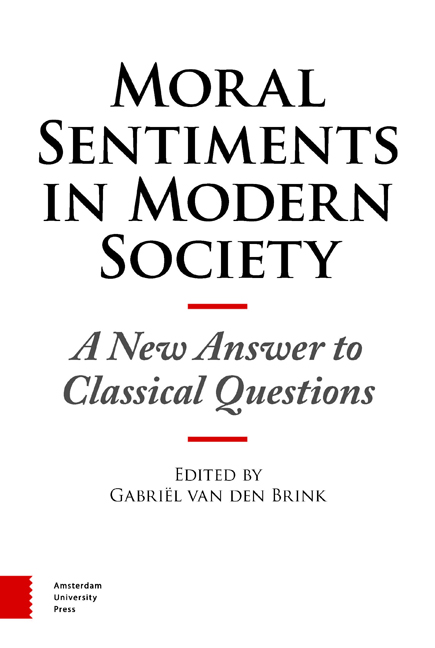Book contents
4 - The Hardening of the Social Climate
Published online by Cambridge University Press: 02 February 2021
Summary
In this chapter we discuss a number of symptoms indicating that the Netherlands is undergoing a form of moral erosion. If this process were to carry on to its logical conclusion, it would eventually spell the end of the entire society. We would then be left with just a gathering of individuals, each pursuing their own interests and having little in common with one another (let alone being attentive to the needs of their fellow human beings). While no one believes that the Netherlands will end up in such a state, many fear that we are moving in that direction. For some time now, there has been a certain pessimism about the moral state of modern society. This mood is sometimes reminiscent of the unease that existed in the Netherlands during the seventeenth century, described by Simon Schama in The Embarrassment of Riches. At that time, the Dutch were deeply concerned about whether their material prosperity would result in moral corruption. Similarly, in recent years people have begun to ask themselves whether certain achievements of the modern era such as prosperity, security, the welfare state and technological innovation are at odds with the more fundamental values of human existence. It is certainly telling that since the 1990s, many of the most intelligent social commentators have adopted a conservative slant.
Below, we discuss some trends that would appear to justify this pessimism. This means that we will be presenting a one-sided picture of modern Dutch society, although further on we will have the opportunity to provide counterexamples. We begin with the process of secularisation that experienced a sudden acceleration in the Netherlands from the 1960s (section 1) and say something about the more physically oriented culture that developed in line with this (section 2). Then we discuss several excesses of this culture, namely the way in which the youth spend their leisure time and the intense experiences they seek (section 3). We also look at the increase in violent behaviour as revealed in the statistics (section 4). A few words should also be said on the change in social norms (section 5) and the effects this has had on the formation of public opinion (section 6).
- Type
- Chapter
- Information
- Moral Sentiments in Modern SocietyA New Answer to Classical Questions, pp. 135 - 164Publisher: Amsterdam University PressPrint publication year: 2016



